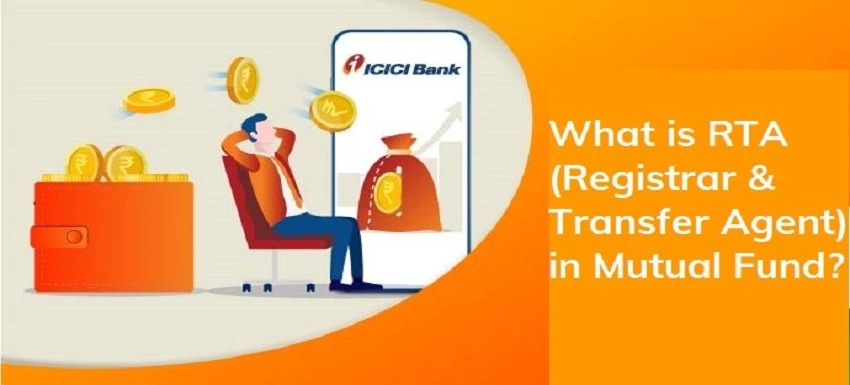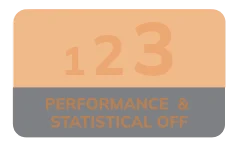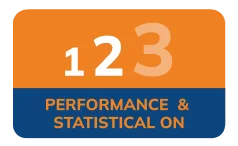THE
ORANGE
HUB
What is an RTA (Registrar and Transfer Agent) in Mutual Funds?

A lot of work is involved in ensuring that Mutual Fund investments are convenient for investors and in accordance with regulatory rules and guidelines. A Registrar and Transfer Agent (RTA) plays an important role in achieving this. An RTA is responsible for handling different tasks like processing transactions, keeping records and making sure everything works smoothly and correctly. In this blog post, we will explain the role of RTAs, the services they provide and how they help both investors and Asset Management Companies (AMCs), which are the companies that issue Mutual Funds.
What Is an RTA in Mutual Funds?
A Registrar and Transfer Agent (RTA) is an institution or a company that is responsible for carrying out administrative tasks related to Mutual Funds. Their main work includes keeping records, processing transactions and answering investors’ queries and doubts. They work as an intermediary between investors and AMCs. Additionally, RTAs are registered with SEBI and help AMCs remain compliant with SEBI rules and regulations.
Services Offered by RTAs
RTAs are essential for the smooth operation of Mutual Funds. They perform a lot of important tasks that benefit both the companies managing the Funds (AMCs) and the investors. Services offered by RTAs are of two types, namely:
1. Services to AMCs
These services include:
Transaction Processing: RTAs handle tasks such as buying and selling Mutual Fund units, switching between Funds, ensuring dividend payments, etc. By taking care of these tasks efficiently, RTAs help ensure that AMCs keep accurate records and follow all necessary rules.
Record Maintenance: RTAs maintain detailed records of each investor’s holdings, transactions and other details. By using this information, RTAs ensure smooth operations, provide AMCs and investors with reliable data for regulatory purposes and ensure proper tracking of all transactions within the Mutual Fund.
Compliance and Reporting: RTAs ensure that the AMCs comply with all regulatory requirements of SEBI and other regulatory authorities. They help AMCs in making reports to regulatory bodies, ensuring timely compliance with regulatory guidelines.
Dividend Distribution and Reconciliation: RTAs play a very important role in managing the distribution of dividends to investors. They compute dividends on the basis of the number of units held by each investor and ensure that AMCs make timely and accurate payments. This process involves the reconciliation of any discrepancies in dividend distribution to ensure that all investors receive the correct amount.
2. Services to Investors
Services that RTAs provide to investors include:
CAS (Consolidated Account Statement): RTAs provide investors with a Consolidated Account Statement (CAS), which is a single account statement that shows all their Mutual Fund investments as well as some other investments. This makes it easy for investors to see their investments in one place. With the CAS, investors can quickly check how their investments are doing and track their holdings, all in one simple document.
Investor Requests: RTAs help investors with common tasks like updating their personal information, changing bank account details or getting their investment statements. They also assist investors with cancelling SIPs (Systematic Investment Plans), transferring units from one Fund to another and changing nominee details. This makes it easier for investors to manage their investments.
Redemption and Dividends: When investors wish to redeem their Mutual Fund units, RTAs take care of the process. They make sure the redemption amount is transferred to the investor’s account quickly. RTAs also handle the distribution of dividends to investors.
KYC and Compliance: RTAs help new investors complete the KYC process by collecting documents like PAN Card, Aadhaar and address proof. They send these documents to KRAs for verification and help ensure all necessary steps are followed according to SEBI regulations.
Why Are RTAs Important in Mutual Fund Operations?
The role of RTAs in Mutual Fund operations cannot be over-emphasised. They ensure that AMCs maintain accurate records, provide timely services to investors and comply with regulatory requirements. Here are some of the key reasons why RTAs are crucial to Mutual Fund operations:
1. Efficiency
RTAs take care of all the paperwork for Mutual Funds, which can be time-consuming. This helps AMCs focus on making good choices about where to invest the investors’ money.
2. Transparency
RTAs play a key role in maintaining transparency in the Mutual Fund industry. They ensure that all investor transactions are correctly recorded and that investors receive the necessary information about their investments. This helps in building trust between investors and AMCs.
3. Convenience
RTAs facilitate investor convenience by offering services such as online account tracking, redemption requests and dividend disbursements. Investors can conveniently manage their Mutual Fund investments through the services provided by RTAs.
4. Compliance
RTAs help Mutual Fund functions meet the regulatory requirements set by SEBI and other authorities. They ensure that all investor transactions are processed in accordance with regulatory requirements, reducing the risk of non-compliance.
5. Risk Management
RTAs help reduce operational risks by maintaining accurate investor records, preventing fraud and ensuring all transactions are completed on time as per the guidelines of regulatory bodies.
Conclusion
RTAs are essential to the smooth functioning of the Mutual Fund industry. They handle important tasks like processing transactions, maintaining records and keeping investors informed. They also serve as a bridge between investors and AMCs. As the Mutual Fund industry grows, RTAs will become even more important in keeping everything running smoothly, transparently and within regulatory guidelines.
For disclaimer, Click here
Scroll to top









